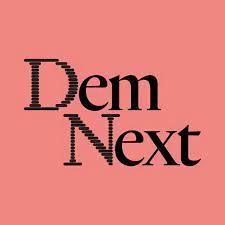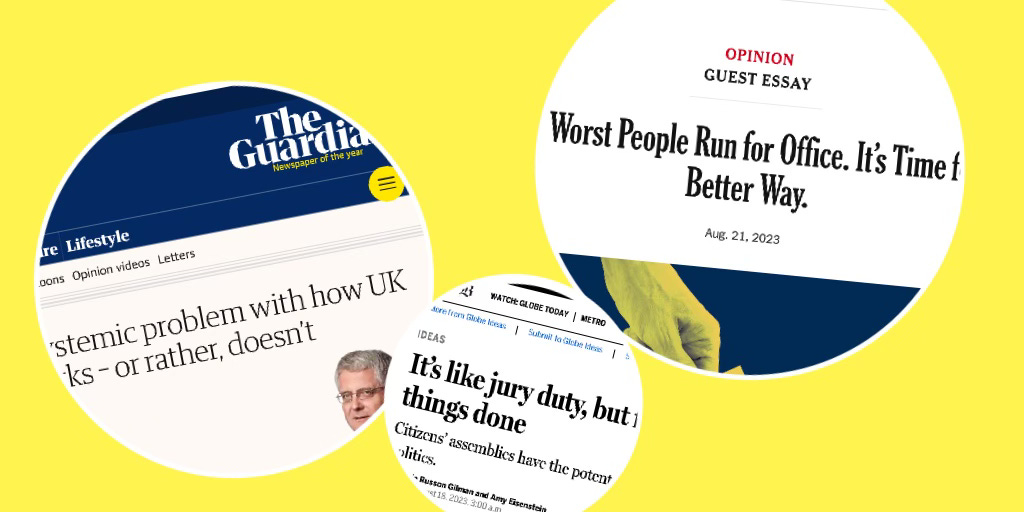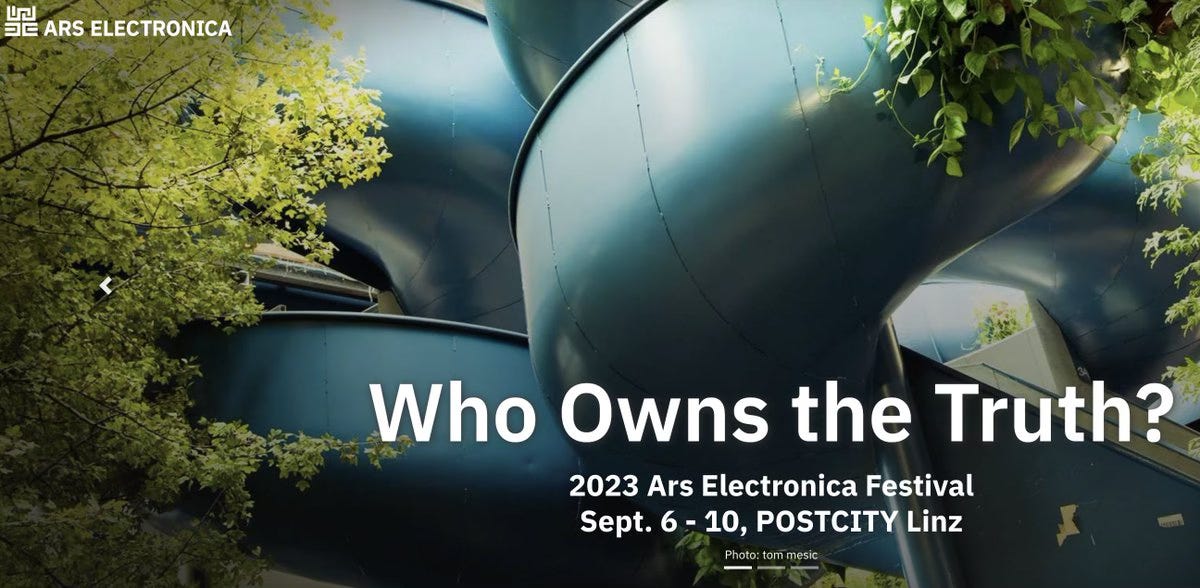
https://demnext.substack.com/p/a-blueprint-for-the-eu-citizens-assembly?...
SUMMARY REPORT: https://www.demnext.org/uploads/The-EUCA-Exec-Summary.pdf?utm_source=sub...
FULL REPORT: https://www.demnext.org/uploads/The-EUCA-Paper_040923-FINAL.pdf?utm_sour...
The European Union has recognised that citizens are not sufficiently involved or empowered in its governance—how can we solve this problem?
Today, ahead of President Von Der Leyen’s 2023 State of the Union address on 13 September, we’re proud to co-publish a paper with the European University Institute written by four leading experts. The paper offers a blueprint for a solution: establishing the EU Citizens’ Assembly (EUCA) to share power with the other three institutions of the European Council, Commission, and Parliament.
After all, “a new push for democracy” is one of the European Commission’s self-declared top priorities for this coming year. This needs to be more than lip service. Unless citizens are given genuine agency and voice in deciding the big issues facing us in this age of turbulence, the authors argue, we will have lost the global battle in defence of democracy. The foundation has been laid for the EUCA with the success of lottery-selected EU Citizens’ Panels during the Conference on the Future of Europe, as well as those initiated by the European Commission over the past year, but more work must be done.
In the paper, the authors explain why such an Assembly is needed, then suggest how it could be designed in an iterative fashion, operated, and what powers it could have in the EU system.
“In a broader context of democratic crisis and green, digital, and geopolitical transitions, we need to open up our imaginations to radical political change,” the authors say. “Political and technocratic elites must start giving up some control and allow for a modicum of self-determination by citizens.”
We partnered with the European University Institute on the authorship and release of this paper; the authors are EUI research associate Carsten Berg, DemocracyNext Founder/CEO and former OECD analyst Claudia Chwalisz, EUI Professor of International Relations and Chair in Global Affairs at the School of Transnational Governance Kalypso Nicolaidis, and Paris 8 University political scientist Yves Sintomer.
To read a summary of the paper, click here.
To download the full paper, click here.
Further reading — If this recent flurry of op-eds in prominent papers is anything to go by, the momentum for Citizens’ Assemblies is building! Take a look: Psychologist Adam Grant advocates for more sortition in America in the New York Times: A lottery would give a fair shot to people who aren’t tall enough or male enough to win. It would also open the door to people who aren’t connected or wealthy enough to run. Our broken campaign finance system lets the rich and powerful buy their way into races while preventing people without money or influence from getting on the ballot. They’re probably better candidates: Research suggests that on average, people who grow up in low-income families tend to be more effective leaders and less likely to cheat — they’re less prone to narcissism and entitlement Writing in The Guardian, Martin Kettle calls for greater deliberative democracy in the UK: In the end, the best hope lies with the people, not the politicians. Not for the first time, modern Ireland seems to offer a way forward from which Britain can learn. Ireland has for some years developed a system of deliberative democracy. In this system, a demographically and politically representative sample of up to a hundred voters, sometimes dubbed a citizens’ assembly, commits to examine the issues and listen to submissions, before attempting to write a policy agenda that all, or most, can endorse. In the Boston Globe, Hollie Russon Gilman and Amy Eisenstein discuss the potential for Citizens’ Assemblies to arrest the democratic decline in the United States: Citizens’ assemblies offer one potential remedy for a democracy where people do not feel like their voice matters and trust in government is declining. The American Academy of Arts and Sciences recommends that Congress convene citizens’ assemblies. Meanwhile, 61 percent of Americans believe we need “significant changes” to the fundamental “design and structure” of American government. Citizens’ assemblies across all levels of government — local, state, and federal — may be just the kind of change people seek. Finally, we want to highlight a few of our upcoming events: At the Ars Electronica Festival in Linz, Austria on September 8, our Founder/CEO Claudia Chwalisz will join the MIT Center for Constructive Communication’s Deb Roy and Dimitra Dimitrakopoulou in a panel on “Large Language Models (LLMs): Imagining a Technology-Assisted Citizens’ Assembly to Create a More Inclusive and Constructive Democratic Process” — details here. On Sept. 9, Claudia will join with Taiwan Minister of Digital Affairs Audrey Tang and others to discuss “The future of democracy in the age of AI” — more here. At Fast Company’s Innovation Festival in New York City on September 20, Claudia will join Kevin O'Neil, Managing Director, Innovation, The Rockefeller Foundation; and Laura Wood, VP, Democracy, Local Policy Lab in a panel discussion, “Innovating on Democracy: Finding New Ways to Power the People” — details. More upcoming DemocracyNext events on our website! Hope to see you at one soon.











